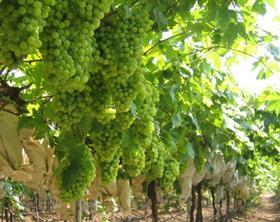
A ray of hope has shone through for Indian grape exporters locked in a standoff with European authorities over chlormequat residues, with the Dutch ambassador to India on Saturday visiting grape exporting units in Maharashtra to get first-hand experience with the use of the chemical.
The step was welcome progress for Indian exporters; the Netherlands is one of the largest buyers of Indian table grapes, and a critical point of entry to Europe.
Communication between India’s Department of Commerce and officials in several key European markets prompted the visit, reported the Financial Express.
Maharashtra is India’s largest export grape producer.
Up to 2,600 containers of Indian grapes are currently languishing in European ports awaiting a decision on the issue, with exporters reportedly looking at losses of Rs2.73bn (US$60m).
The dispute arose following detection of the chemical chlormequat on Indian grapes in Sweden.
The European Union does not have a specific maximum residue level (MRL) for the chemical chlormequat, meaning it was automatically subject to the EU’s default base detection level, set at 0.05ppm, even though individual MRLs set for chlormequat chloride in other parts of the world are significantly higher.
The European Food Safety Authority (EFSA) has since said there are no acute health risks with grapes containing levels below 1.06 gm per kg, leading the UK and Ireland to begin accepting shipments.



